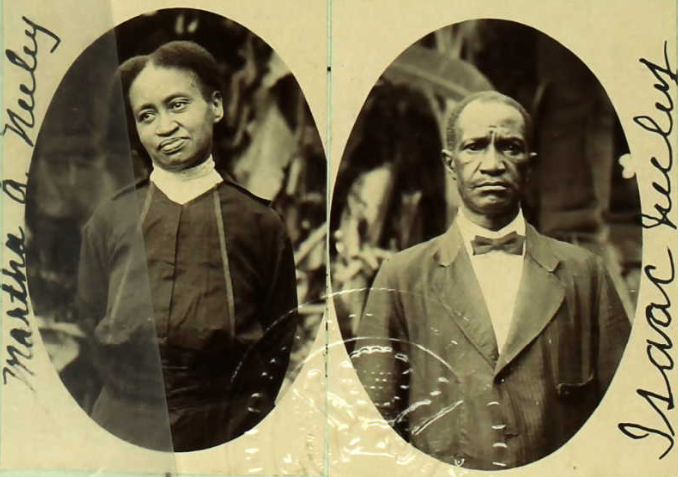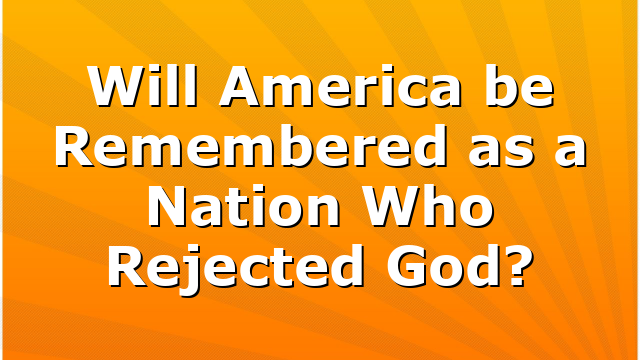The First African American Assemblies of God Missionaries: Isaac and Martha Neeley

By Darrin J. Rodgers
Isaac and Martha Neeley were the first African Americans to be appointed as Assemblies of God (AG) missionaries. Isaac S. Neeley was born on August 4, 1865 near Salisbury, North Carolina.[1] Martha A. Board was born on May 3, 1866 in Princeton, Indiana.[2] They married in their late thirties on April 25, 1905, in Chicago.[3] Martha had one child who died before the age of five.[4]
The Neeleys became very active at the Stone Church, an early Pentecostal revival center in Chicago, in about 1908. They were highly regarded at the church, which was mostly white. An article in the church’s monthly magazine, the Latter Rain Evangel, called them “an indispensable adjunct of the Stone Church.”[5]
Martha felt called to missions work at a young age. Her father was connected with a colonization society that encouraged free blacks in the United States to move to Liberia. As a child she heard stories about Liberia that “stirred her heart.” After Isaac felt a call to missions at a Stone Church missions convention in about 1910, the couple began preparing themselves to serve in Liberia.[6]
L. C. Hall, a Pentecostal minister who lived in Zion City, Illinois, ordained the Neeleys as missionaries on November 30, 1913. The ordination was under the auspices of Howard A. Goss’s largely-white Pentecostal fellowship, the Church of God in Christ (which was distinct from Charles H. Mason’s group by the same name).[7]
The Neeleys set sail for Liberia, where they lived from January 25, 1914[8] until June 1, 1919.[9] They served with the Liberia Interior Mission, which consisted of American and Canadian missionaries from various denominational backgrounds, all of whom had the Pentecostal experience. A history of the mission described the organization:
“We represent Methodist, Presbyterian, Congregational, Baptist, Dunkard, Mennonite, Quakers, Pentecostal-Holiness, Mission People and Gospel Workers. So you see we are a sort of mixture, but no dispute has ever arisen in our ranks. We make the Bible the chief book, and strive to live simple and Christian lives. We baptize by immersion. All believe in the Pentecostal Experience, as received on the day of Pentecost.”[10]
The Neeleys received financial support from the Stone Church, as well as from donations mailed to the Latter Rain Evangel. The Neeleys kept their supporters informed of their missions activities through published missionary letters in the Latter Rain Evangel.[11]
The organization that ordained the Neeleys in 1913, the Church of God in Christ, dissolved when most of its leaders helped to organize the AG in April 1914. The Neeleys, however, did not transfer their ordination to the AG during their tenure in Liberia. They may have been following the example of the Stone Church, which remained independent even while becoming closely associated with the AG. The Stone Church hosted two general council meetings (November 1914 and September 1919) but did not formally affiliated with the AG until 1940.[12]
The Neeleys returned from Liberia to Chicago in the summer of 1919. Soon after their return, the Neeleys attended the September 1919 general council, which was hosted by the Stone Church. The following year, in May 1920, the Neeleys received AG credentials as evangelists from the Illinois District, endorsed by Hardy Mitchell, pastor of the Stone Church.[13]
According to an article in the Latter Rain Evangel, the Neeleys became active in ministry at the “Colored Mission on Langley Avenue.”[14] This mission was probably the Pentecostal congregation started by Lucy Smith, an black Baptist woman who was baptized in the Holy Spirit in 1914 at the Stone Church. Smith began her ministry in 1916 out of her apartment and a small flock developed, which organized in the 1930s as All Nations Pentecostal Church.[15] According to Isaac Neeley’s ministerial file, he served as an associate pastor in 1923, presumably at Smith’s mission. When the Neeleys felt called to return to Liberia later in 1923, he directed correspondence to be sent to Lucy Smith.[16]
The Neeleys received AG missionary appointment to Liberia in 1923. Isaac suffered a stroke on December 7, 1923, and died on the following day, shortly before their planned departure.[17]
An article in the Latter Rain Evangel lauded the fallen missionary:
“His funeral was one of the most blessed we have ever attended. It seemed more like a celebration of his Coronation Day than a funeral. Ministerial brethren and others from all over the city gave fitting tributes to the noble life laid down in the service of God. One of the most striking tributes to his life was given by the barber in the neighborhood as he told of Brother Neeley’s life and its effect upon all with whom he came in contact. Brother Neeley lived the life of the Lord Jesus daily; whether on the platform or doing some menial task, his heart was always filled with praises.”[18]
Martha proceeded alone in 1924 to Cape Palmas, Liberia, where she was in charge of Bethel Home, a rest home for missionaries founded in 1913. She took over the work from “Mr. and Mrs. Howard,” who had been granted furlough.[19] Her predecessors were probably Alexander and Margaret Howard, African American Pentecostals from Chicago who had been sent as missionaries to Liberia in 1920 by the United Pentecostal Council of the Assemblies of God, an African American Pentecostal group with roots in the AG. The Howards had also served at Bethel Home.[20]
The Latter Rain Evangel and the Pentecostal Evangel published a number of articles by or about Martha between 1924 and 1928. The final note in her ministerial file states she returned to America from Liberia on July 1, 1930.[21] She apparently did not renew her AG credentials. She returned to Liberia again at some point between 1930 and 1935, as passenger lists in November 1935 state that she sailed from Liberia to New York.[22] Martha A. Neeley seemingly disappeared from the historical record after 1935.
Missions has always been central to the identity of the AG. This focus on missions was probably why veteran missionaries Isaac and Martha Neeley became credentialed with the Fellowship in 1920. In 1923, when they became the first black AG missionaries, they were helping to fulfill the resolution adopted at the November 1914 general council at the Stone Church, committing the AG to achieve “the greatest evangelism the world has ever seen.”[23] People from all races and backgrounds were expected to participate in this commitment to world evangelization. May this same commitment continue to animate the Assemblies of God today!
Adapted from: Darrin J. Rodgers, “The Untold Stories of Three Black Assemblies of God Pioneers,” Assemblies of God Heritage 39/40 (2019-2020): 37-41.
[1] Isaac Neeley, U.S. Passport Application, May 15, 1919. Ancestry.com.
[2] Martha Neeley, U.S. Passport Application, March 31, 1924. Ancestry.com.
[3] Cook County, Illinois, Marriages Index. Ancestry.com.
[4] 1910 U.S. Federal Census. District 0233, Chicago Ward 03, Cook Co., Illinois, 13B.
[5] Latter Rain Evangel, November 1913, 3.
[6] Latter Rain Evangel, November 1913, 3; Martha’s father may have been influenced by Washington Graham, pastor of the African Methodist Episcopal Church in Princeton, Indiana, and a prominent supporter of missions work in Liberia. Alesia Elaine McFadden, The Artistry and Activism of Shirley Graham Du Bois: A Twentieth Century African American Torchbearer. (Ph. D. Diss, University of Massachusetts, Amherst, 2009), 96, 139.
[7] Isaac and Martha Neeley, ministerial files, FPHC.
[8] Isaac Neeley, U.S. Passport Application, May 15, 1919. Ancestry.com.
[9] Martha Neeley, U.S. Passport Application, March 31, 1924. Ancestry.com.
[10] Report of the Liberia Interior Mission, 1908-1916, 3. FPHC.
[11] “First Hardships as a Missionary,” Latter Rain Evangel, April 1914, 11-12; “Wonderful Outpouring of the Spirit in West Africa,” Latter Rain Evangel, April 1914, 22-24; Isaac and Martha Neeley, “Working with Christ in West Africa and the Results,” Latter Rain Evangel, March 1917, 21-22; Martha Neeley, “Blackest Night in the Dark Continent,” Latter Rain Evangel, March 1918, 22-24; Martha Neeley, “The Native African’s Ready Response to Divine Healing,” Latter Rain Evangel, August 1919, 8-10; Isaac Neeley, “Miraculous Deliverances from Demon Possession,” Latter Rain Evangel, August 1919, 10-11.
[12] Stone Church: 100 Years, 1906-2006 (Palos Heights, IL: Stone Church, 2006), 6.
[13] Isaac and Martha Neeley, ministerial files, FPHC.
[14] Latter Rain Evangel, February 1924, 14.
[15] Glenn Gohr, “Elder Lucy Smith of Chicago,” Assemblies of God Heritage 28 (2008): 63-64.
[16] Isaac Neeley, ministerial file, FPHC.
[17] Latter Rain Evangel, February 1924, 14.
[18] Latter Rain Evangel, February 1924, 14.
[19] “Receiving Home in Liberia,” Pentecostal Evangel, December 6, 1924, 11; Christ’s Ambassadors Monthly, October 1929, 12.
[20] Ironically, in 1917 Alexander Howard had reportedly been denied AG missionary appointment on account of his race, which led the Howards to instead affiliate with the UPCAG. Alexander R. Howard, The U.P.C. Mission Work in Liberia, West Africa and Striking Incidents in Mission Work Among Heathen Tribes (New York, NY: the author, [1932?]), 4; Herman L. Greene, UPCAG – The First 90 Years: Volume 1: 1919-1945 (Sussex, NJ: GEDA, 2005), 7-11; Ogbu Kalu, African Pentecostalism: An Introduction (Oxford: Oxford University Press, 2008), 51-53; Scott Harrup, “A Larger Family,” Pentecostal Evangel, January 16, 2011, 8.
[21] Martha Neeley, ministerial file, FPHC.
[22] Immigration and Emigration Records. Ancestry.com.
[23] General Council Minutes, November 1914, 12.
Do you have Pentecostal historical materials that should be preserved? Please consider depositing these materials at the Flower Pentecostal Heritage Center (FPHC). The FPHC, located in the Assemblies of God national offices, is the largest Pentecostal archive in the world. We would like to preserve and make your treasures accessible to those who write the history books.
Flower Pentecostal Heritage Center
1445 North Boonville Avenue
Springfield, Missouri 65802 USA
Phone: 417.862.1447 ext. 4400
Toll Free: 877.840.5200
Email: [email protected]
Website: www.iFPHC.org







Leave a Reply